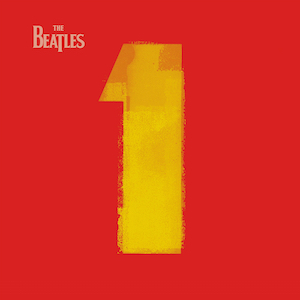Everybody sucks sometimes. Even the nicest people have really bad days and rather than deal with it, they take it out on you. All you can do when people suck, and they will, frequently, is assume that there are ten other things going on in their lives (school, work, rent, family, health, etc.) and hope that if you met them on a different day you'd actually be best of friends, or at least civil to one another.
And maybe that encounter with you, and seeing what unhappiness unfolded from their immature lashing out at you, will change them. When they get home, cool down, and realize that they acted poorly, hopefully the guilt will stick with them and shape them for the better. Maybe the next innocent bystander to their crappy day will be better off because of you.
Friday, July 30, 2010
Space! The final frontier...
 Let's say humanity discovers the technology to travel between stars and colonize other planets. Soon after that point we'd probably send out our first colonizing ship (for the sake of the narrative, let's call it NewEarthOne), but due to the immense distance between stars, the journey could take several lifetimes. Science-fiction tells us that, in order to cut down on supplies needed for the journey, the colonists and crew would be kept in a state of suspended animation, only awaking from this deep sleep when the autopilot calculates that they have arrived.
Let's say humanity discovers the technology to travel between stars and colonize other planets. Soon after that point we'd probably send out our first colonizing ship (for the sake of the narrative, let's call it NewEarthOne), but due to the immense distance between stars, the journey could take several lifetimes. Science-fiction tells us that, in order to cut down on supplies needed for the journey, the colonists and crew would be kept in a state of suspended animation, only awaking from this deep sleep when the autopilot calculates that they have arrived.Back on earth, technological advances are still being made and in another 20 years or so, we develop substantially faster technology. Once the technology is perfected, they send out another colonizing ship. However, due to the scientific advances, this one will arrive before the first ship. When NewEarthOne arrives many years later, they awaken to find a thriving and futuristic NewEarth colony already established on the virgin soil they were seeking.
This concept could be taken even further because if the first trip takes hundreds of years, then there is time for many technological leaps. Perhaps the fifth group to set out is actually the first to arrive and every few decades a ship full of people shows up from further in the past.
It would be a cruel fate to be a pioneer, leaving your old world behind and setting out to create a new one from scratch, only to find that the old one beat you there.
Thursday, July 29, 2010
Speaking Words of Wisdom
I was introduced to The Beatles in 2000 by the album 1. My parents played it over and over again in the car for years. As I grew, my favorite songs changed from "Eight Days a Week" and "A Hard Day's Night" to the ones further through the album (which is organized chronologically) such as "Hey Jude" and "Let it Be." Though I liked the music and I appreciated the apparent significance given to The Beatles by their fans, I didn't understand the what the big deal was; I had heard music just like this by countless other people on the radio. In fact, it was probably because I had listened to so much popular music as a kid that I liked The Beatles at all.
It wasn't until college, when I had most of a minor in music under my belt that I realized why The Beatles were so extraordinary. The year The Beatles played on the Ed Sullivan Show (1963), the biggest hits were songs like "Louie, Louie" and "It's My Party" that you'd find on oldies stations nowadays. In 1966, when Sgt. Pepper's came out (think "Lucy in the Sky with Diamonds" and the tambura-laden "Within You Without You"), the top of the charts were Frank Sinatra and the Beach Boys.
The Beatles' music defined the course of popular music, then reinvented it before the rest of the industry had time to catch-up. More than this, they inspired musicians in every genre of music. This is wonderfully illustrated in the performances by other legendary artists at the presentation ceremony of the Gershwin Prize to Sir Paul McCartney which aired on PBS tonight.
It wasn't until college, when I had most of a minor in music under my belt that I realized why The Beatles were so extraordinary. The year The Beatles played on the Ed Sullivan Show (1963), the biggest hits were songs like "Louie, Louie" and "It's My Party" that you'd find on oldies stations nowadays. In 1966, when Sgt. Pepper's came out (think "Lucy in the Sky with Diamonds" and the tambura-laden "Within You Without You"), the top of the charts were Frank Sinatra and the Beach Boys.
The Beatles' music defined the course of popular music, then reinvented it before the rest of the industry had time to catch-up. More than this, they inspired musicians in every genre of music. This is wonderfully illustrated in the performances by other legendary artists at the presentation ceremony of the Gershwin Prize to Sir Paul McCartney which aired on PBS tonight.
Subscribe to:
Posts (Atom)

